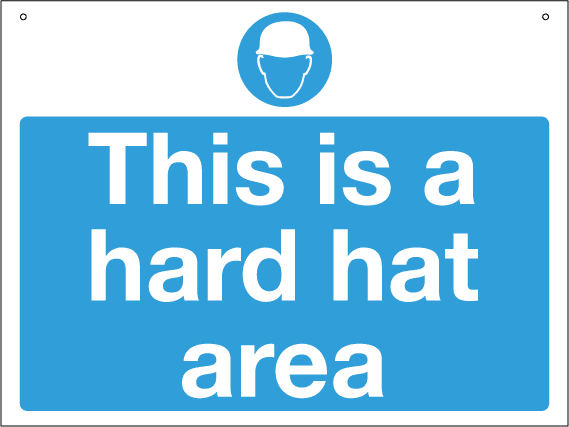 While you are here be sure to join my SAT prep email list for exclusive subscriber-only tips and tricks from a perfect-scoring test prep tutor!
While you are here be sure to join my SAT prep email list for exclusive subscriber-only tips and tricks from a perfect-scoring test prep tutor!
You may or may not already know about your early application options when it comes to college admissions and the SAT.
Early Action and Early Decision are two choices that allow you to apply early and hear back early.
There are both upsides and downsides to the two options, so keep reading to get the details!
What are the purposes of Early Decision and Early Action?
- To demonstrate a strong commitment to specific colleges
- To save money on college applications and sending SAT scores (if you are, in fact, accepted early)
- To know as soon as possible if you’ve been accepted and end the stressful waiting period
- To buy yourself additional time to apply for scholarships and financial aid
Who should use Early Decision and Early Action?
These options are not for everyone.
Because they also carry downsides, which we will learn about later, these programs are best for students who meet many of the following criteria:
- Students who have a clear first-choice college in mind.
- Students who have fair to excellent chances of being accepted by their first choice (based on GPA and standardized test scores).
- Students who feel confident in their academic decisions thus far.
- Students who have researched and visited multiple colleges and universities

What is Early Decision, specifically?
Early decision is a serious commitment to a student’s first-choice school.
Early decision is binding, which means that if the student is accepted, he or she must attend that college as long as the financial situation is acceptable.
Get Exclusive SAT Prep Tips!
I want to send you more tips to help your SAT score, but I need your email address to stay in touch. Enter your email below so I can send you my reports on the SAT and other subscriber-only bonuses.
You are only allowed to apply ED to one college or university.
Early decision offers the earliest chance to know if you’ve been accepted, with your acceptance or rejection letter usually arriving by December.
Assuming you are accepted, you agree to withdraw all other applications to other colleges upon acceptance by your first-choice school.
If accepted, your nonrefundable deposit (to reserve and confirm your slot at the college) will be due earlier.
What about the other one? What is Early Action, exactly?
Early Action is less of a commitment than Early Decision.
Early Action is non-binding, so you retain all the normal flexibility of selecting which college you choose to attend.
There is no limit to the number of schools that you can apply EA too.
You still know fairly early if you’ve been accepted – usually by January or February at the latest.
With Early Action, you still apply to other colleges like normal. There is no need to withdraw any college applications at any point.
Most important differences between Early Action and Early Decision:
- ED is binding, EA is non-binding
- You can only apply to one school as ED, but EA applications are unlimited
- ED applicants know sooner than EA applicants
- ED applicants have less time to apply than EA applicants
- ED can save some money, EA doesn’t save much money
- ED might help your chances of college acceptance slightly, while EA probably helps less or doesn’t change your chances
What are the SAT deadlines for Early Decision?
To apply Early Decision, you normally will need to take your final SAT test no later than October.
Generally it would be best to take any necessary SAT 2 Subject Tests at the end of Junior year, but some colleges will “provisionally review” your application for Early Decision even if your final SAT scores are still being graded.
It’s very important to stay in personal contact with the schools (i.e. by phone or e-mail) if you have any possible concerns or issues about SAT scores being received on time.
What are the SAT deadlines for Early Action?
It’s still going to be best to take the October test as your final SAT exam.
However, you may be able to get away with the November SAT test date if you contact each school to make sure it’s alright.
As with Early Decision (see above), it’s important to stay in personal contact with any schools that might not get your SAT 1 or SAT 2 Subject Test scores by the required deadlines due to the grading period. You may still be able to apply Early Action.
Is it ever necessary or required to apply EA or ED?
Absolutely not. No one is exactly sure how much EA and ED help your application (if at all), but there is nothing unusual about applying with the regular deadlines.
Keep in mind that the vast majority of high school students probably don’t ever know about or use EA or ED options. They are simply an additional choice you are free to make during the college admissions process.
hese are the type of people who should NOT feel pressured to apply Early Decision or Early Action:
- Students that aren’t exactly sure what schools they like or what they’re looking for
- Students that haven’t really gotten started on SAT prep yet
- Students who are still thinking or need more time to decide
These students will only feel more pressured by rushing to apply early.
A pro tutor’s experience and opinion on applying Early Decision:
I applied Early Decision to my first-choice school and was accepted.
In fact, I clearly remember being the first student in my entire graduating class to know where he was going to college, and it was nice to save the money on all the other college applications I was going to send out (I had 10 other school choices, which would have cost some $1500 in application fees and SAT score reports).
Furthermore, if I had been wiser at the time, I would have used the extra space in my schedule to apply for more college scholarships and other sources of financial aid to help me pay for school and make it an overall better value.
I do think my (strong) application was nudged upwards by applying Early Decision. I have no foundation of proof to base this on, other than the sheer speed with which I was notified that I had been accepted.
My opinion is that most people should not worry applying Early Decision, especially because the “binding commitment” thing can be pretty stressful if you have any doubts or second thoughts.
However, if you’re confident of your choice, a strong applicant, and a good match for your particular choice of college, I think Early Decision is a good choice.
You should be able to give very specific research and reasons for your choice of university – and this also means being able to explain why you don’t want to attend a variety of other schools that you’ve researched.
You need to make sure that you know all your options.
Don’t apply Early Decision if you’re like this:
I cringe when families decide to apply Early Decision without very well-thought-out reasons for doing so. It just feels too much like a “Hail Mary,” hoping that the college will give this student special consideration for choosing to apply ED.
Or, some parents let students make the decision without input or backup and they end up with a random choice of school that isn’t a particularly wise or good fit for the student.
This decision should not be rushed into, and it’s fine to ignore ED entirely!
What if I’m too late to apply Early Decision or Early Action?
Well, as you may be able to tell from the previous paragraph, I’d suggest just not worrying about it at all.
The majority of students apply and are admitted as regular-deadline applications, so there’s nothing at all unusual about it.
Don’t fall into the trap of rushing to decide what college you attend just because you want to apply ED.
Now check out my Winning College Scholarships video course – because once you get into college, you’ll still need to pay for it!
Further Reading:
Read This Before Applying Early-Decision
Regular Admission or Early Decision: When Should You Apply to College?
How to Get Into College: The Complete Guide
Why Activities Can Make or Break Your College Application
Additional Resources:
Winning College Scholarships for High Schoolers (Video Course)
Wait! Learn something useful or interesting from this article? Subscribe to my free SAT prep e-mail list for subscriber-only downloads and exclusive test-prep bonus content!



















Find Me on Social Media